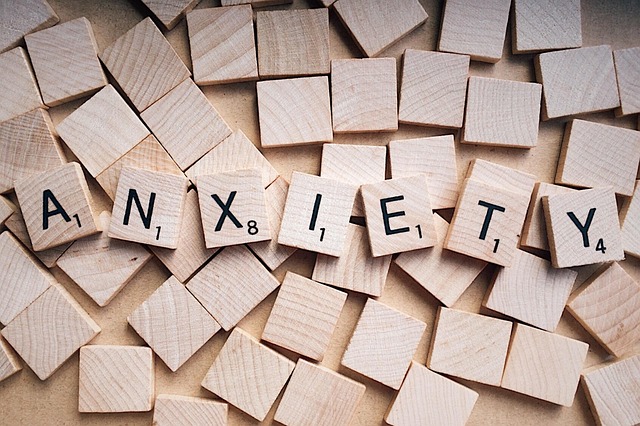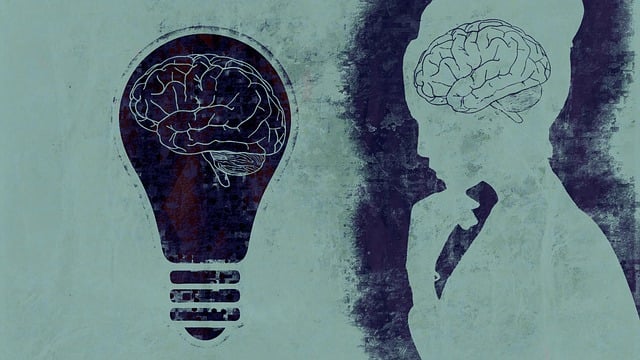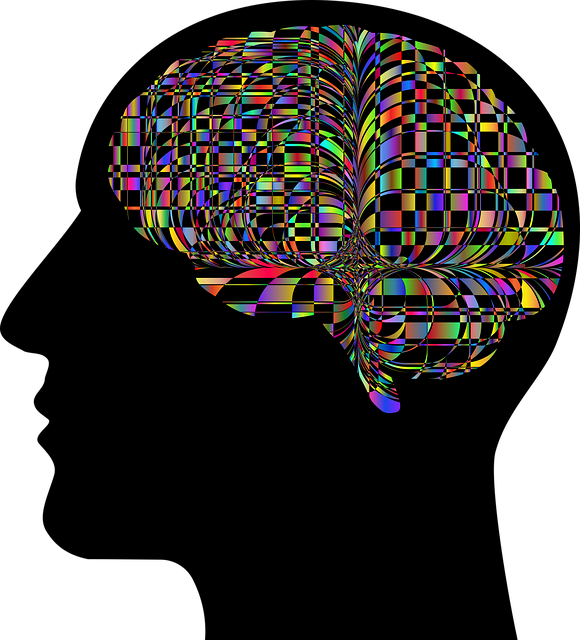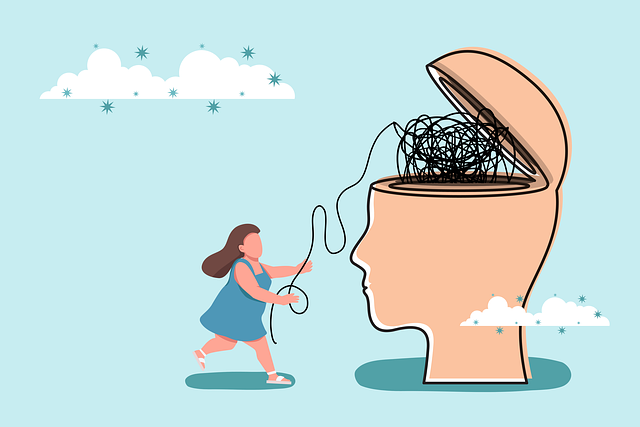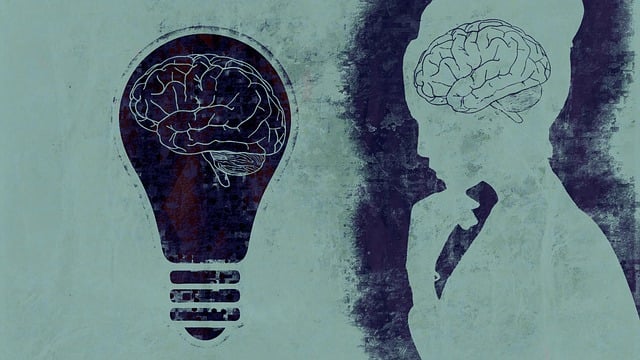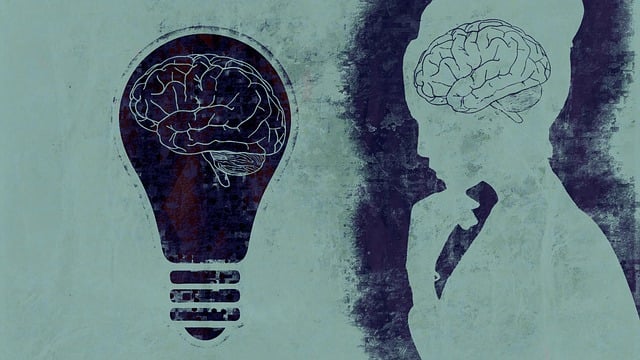Anxiety disorders and eating disorders often coexist, posing complex challenges at Littleton Eating Disorders Therapy. CBT is an evidence-based approach targeting negative thought patterns and behaviors. Mindfulness practices, including meditation and mindful eating, cultivate self-compassion and resilience. Holistic management involves balanced nutrition, regular exercise, and adequate sleep to support overall health and emotional regulation. Exposure therapy, relaxation exercises, and support groups help manage anxiety. Littleton Eating Disorders Therapy offers tailored programs addressing both anxiety disorders and co-occurring conditions.
Anxiety disorders affect millions, yet manageable through effective techniques. This guide explores various strategies to combat anxiety, from understanding its symptoms and causes to powerful therapeutic approaches like Cognitive Behavioral Therapy (CBT). Discover mindfulness practices for mental calmness, lifestyle changes focusing on nutrition, exercise, and sleep, plus additional techniques such as exposure therapy and support groups. For tailored help in Littleton Eating Disorders Therapy, these insights offer a comprehensive roadmap towards managing anxiety.
- Understanding Anxiety Disorders: Symptoms and Causes
- Cognitive Behavioral Therapy (CBT): A Powerful Tool for Anxiety Management
- Mindfulness Practices: Cultivating Presence to Calm Anxious Minds
- Lifestyle Changes for Reduced Anxiety: Nutrition, Exercise, and Sleep
- Additional Techniques: Exposure Therapy, Relaxation Exercises, and Support Groups
Understanding Anxiety Disorders: Symptoms and Causes

Anxiety disorders are a group of mental health conditions characterized by excessive and persistent worry or fear that interferes with daily life. Symptoms can vary but often include physical manifestations like rapid heartbeat, sweating, and difficulty breathing, as well as cognitive symptoms such as intrusive thoughts and avoidance behaviors. The causes of anxiety disorders are multifaceted, encompassing genetic predisposition, brain chemistry imbalances, traumatic life events, and environmental stressors.
At Littleton Eating Disorders Therapy, we recognize that anxiety often co-occurs with eating disorders, complicating treatment. Understanding the intricate relationship between these conditions requires a holistic approach. Self-esteem improvement techniques and communication strategies are pivotal in addressing underlying issues. Additionally, burnout prevention strategies for healthcare providers are essential, as they ensure professionals can offer effective support while maintaining their own well-being.
Cognitive Behavioral Therapy (CBT): A Powerful Tool for Anxiety Management

Cognitive Behavioral Therapy (CBT) is a highly effective and evidence-based approach to managing anxiety disorders. This therapy type focuses on identifying and changing negative thought patterns and behaviors that contribute to anxiety, making it a powerful tool for individuals seeking relief from symptoms associated with eating disorders in Littleton or other mental health challenges.
By promoting self-awareness exercises and encouraging clients to challenge their unhelpful beliefs, CBT empowers them to develop healthier coping strategies. Through this process, individuals can enhance their self-esteem and gain better control over their anxiety. Moreover, the training provided by healthcare providers on cultural competency ensures that therapy aligns with each client’s unique background, making CBT accessible and beneficial for diverse populations.
Mindfulness Practices: Cultivating Presence to Calm Anxious Minds

In today’s fast-paced world, anxiety can feel like a constant companion. However, mindfulness practices offer a powerful tool to cultivate presence and calm anxious minds. By focusing on the here and now, rather than dwelling on worries of the past or future, individuals can break free from the cycle of anxious thoughts. This simple yet profound shift in awareness is akin to taking a deep breath in a bustling city—a momentary pause that allows one to recenter and regain clarity.
Litleton Eating Disorders Therapy emphasizes mindfulness as a core component of its approach, incorporating empathy building strategies and compassion cultivation practices to reinforce this calming technique. Engaging in regular self-care practices, such as meditation or mindful eating, can further strengthen an individual’s ability to manage anxiety effectively. Through these holistic methods, individuals not only learn to quiet their minds but also develop a deeper sense of self-compassion, enabling them to navigate life’s challenges with greater resilience and peace.
Lifestyle Changes for Reduced Anxiety: Nutrition, Exercise, and Sleep

Anxiety management often extends beyond therapy sessions and involves adopting lifestyle changes that can significantly impact emotional well-being. At Littleton Eating Disorders Therapy, we emphasize holistic approaches to mental wellness. One such approach is mindful consideration of nutrition, as certain foods can either exacerbate or alleviate anxiety symptoms. A balanced diet rich in whole grains, lean proteins, and healthy fats supports overall health and can boost confidence, a key component in emotional regulation.
Regular exercise is another powerful tool for managing anxiety. Physical activity releases endorphins, which act as natural mood elevators, helping to reduce stress and promote mental clarity. Incorporating daily movement, whether it’s a brisk walk, yoga session, or any form of exercise enjoyed, can be an effective strategy in one’s emotional regulation toolkit. Additionally, prioritizing sleep is essential; adequate rest allows the body and mind to recover from daily stressors, making it easier to navigate life’s challenges with greater ease. Keeping a mental wellness journal to track nutrition, exercise, and sleep patterns can serve as valuable guidance in identifying what works best for individual needs.
Additional Techniques: Exposure Therapy, Relaxation Exercises, and Support Groups

Exposure therapy is a powerful tool for managing anxiety, helping individuals confront and overcome their fears in a safe environment. This technique gradually exposes clients to stressful situations, allowing them to learn coping strategies and realize that their feared outcomes are unlikely. By facing their anxieties step by step, people can gain control and reduce the intensity of their responses over time.
Relaxation exercises, such as deep breathing, meditation, or progressive muscle relaxation, are effective self-care practices for anxiety relief. These techniques promote a sense of calm and help individuals regain a feeling of control. Support groups also play a significant role in anxiety management, providing a safe space to share experiences, gain different perspectives, and offer mutual support. Joining such groups can foster a sense of belonging and enhance the overall effectiveness of stress reduction methods. For those seeking specialized assistance, Littleton Eating Disorders Therapy offers comprehensive programs tailored to address anxiety disorders alongside other co-occurring conditions.
Anxiety management is a holistic journey that involves understanding, treating, and preventing symptoms. By integrating evidence-based techniques like Cognitive Behavioral Therapy (CBT), mindfulness practices, lifestyle changes, exposure therapy, relaxation exercises, and support groups—even considering specialized treatments like those offered by Littleton Eating Disorders Therapy for co-occurring conditions—individuals can effectively navigate their anxious minds towards greater mental well-being.

